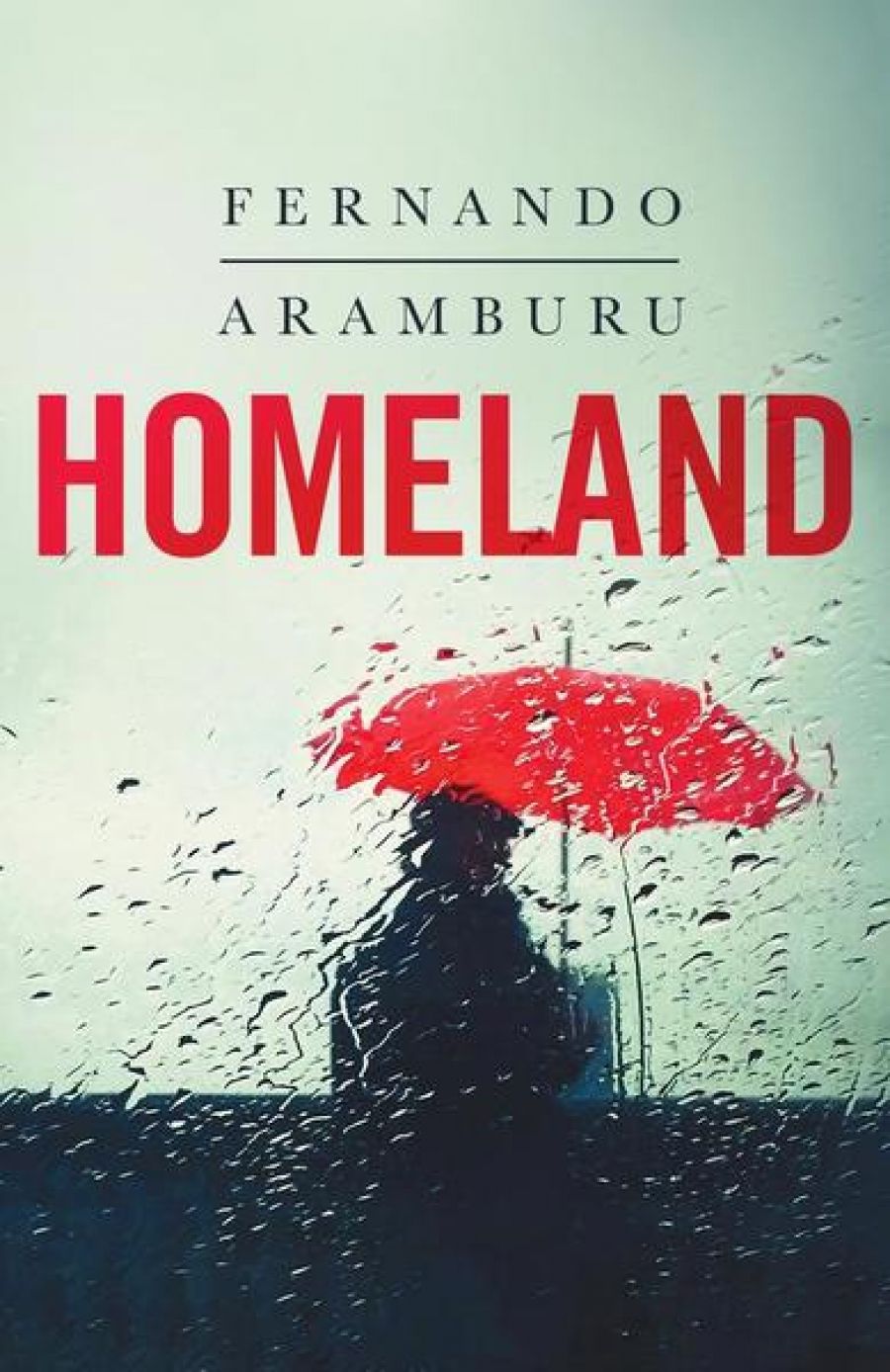
- Free Article: No
- Contents Category: Fiction
- Custom Article Title: Gabriel García Ochoa reviews <em>Homeland</em> by Fernando Aramburu, translated by Alfred MacAdam
- Review Article: Yes
- Online Only: No
- Custom Highlight Text:
ETA, a terrorist group formed in the late 1950s, was predominantly active in the Basque Country. Its name is an acronym in Basque for ‘Euskadi Ta Askatasuna’, which means ‘Basque Country and Freedom’. Fernando Aramburu’s Homeland is not the first novel to deal with the decades of ETA’s terror ...
- Book 1 Title: Homeland
- Book 1 Biblio: Picador, $32.99 pb, 586 pp, 9781509858033
Aramburu shows his phenomenal craft in unravelling the plot. The narrative structure is non-linear; it is an outward-flowing spiral with Txato’s murder at the centre. The story orbits around the killing, sometimes appearing to pull away but always coming back to it. There is a continuous use of flashbacks and flashforwards, almost from chapter to chapter, to delve into the lives of those close to Txato. This is done with virtuosic clarity; in less accomplished hands the storyline would be a baroque mess. Instead, the novel has one hundred and twenty-five chapters that read like short stories of almost Chekhovian intensity. Almost, because one cannot have Chekhovian intensity without strong characters.
Even though Homeland is a page-turner, its characters are at best superficially profound; at worst, profoundly superficial. The goodies are good, the baddies are bad. Xabier, Txato’s son, is a stoic surgeon, more stoic after the loss of his father. Bittori, Txato’s widow, is consumed by bitterness and grief. Gorka, Joxe Mari’s brother, finds the town’s militant atmosphere suffocating because he is a closeted gay who likes to read. His mother, Miren, is a devout nationalist, but we never quite fathom why she thinks the way she does.
 Fernando Aramburu (photograph by Ivan Giménez/Tusquets Editores/Penguin Random House)
Fernando Aramburu (photograph by Ivan Giménez/Tusquets Editores/Penguin Random House)
Then there is Joxe Mari, the weakest character in the book. Joxe Mari is a bully and a brute. His nationalism is tautological: he loves the Basque Country because he loves the Basque Country. He is passionate about blowing things up and speaking Basque (even though he does both poorly). He doesn’t seem to understand ETA’s political ideology beyond the notion that the Spanish exploit the Basque and that only violence can lead to the region’s successful independence. There are feeble moments of ambiguity in Joxe Mari, as when he hesitates before his first assassination and feels sick afterwards, but these don’t last. Worse, there is no moral ambivalence to help us spin a thread of empathy toward the character. Joxe Mari is not a psychopath, that much is clear. So why does a ‘normal’ person engage in the horrors of terrorism? What existential motivations drive his actions? This isn’t Dostoevsky’s Raskolnikov trying to prove, through his murderous arrogance, that he is not an insignificant wretch, but exceptional, and good. We are not offered the obscene contradictions of Maximilien Aue, the brilliant, unrepentant SS officer in Jonathan Littell’s The Kindly Ones, a German nationalist of French heritage, an aesthete of impeccable taste with a PhD in jurisprudence, who is also a sadistic voyeur. What ideology can shine a light bright enough to convince Joxe Mari that the atrocities he commits are, in fact, positive? Aramburu’s answer seems to be that violence is barbaric, futile, and, above all, stupid, and that only those stupid enough to believe otherwise engage in it. Perhaps, so close to ETA’s ceasefire, rather than an aesthetic exploration of terrorism, Homeland is a plot-driven novel that aims to bring closure to the families and friends of ETA’s victims and to hammer the last nail on ETA’s coffin. From a moral point of view, this is laudable; from a literary one, boring.
Homeland is Aramburu’s first novel translated into English. Alfred MacAdam’s previous translations include works by Latin American titans of the likes of Carlos Fuentes, Alejo Carpentier, and Mario Vargas Llosa. MacAdam is a brilliant translator and scholar, and his Homeland is generally good, but there are a handful of jarring turns of phrase and malapropisms that seem at odds with the otherwise elegant style of the book. The text is peppered with irritating typographical errors, which, in fairness to MacAdam, are probably editorial faux pas.


Comments powered by CComment